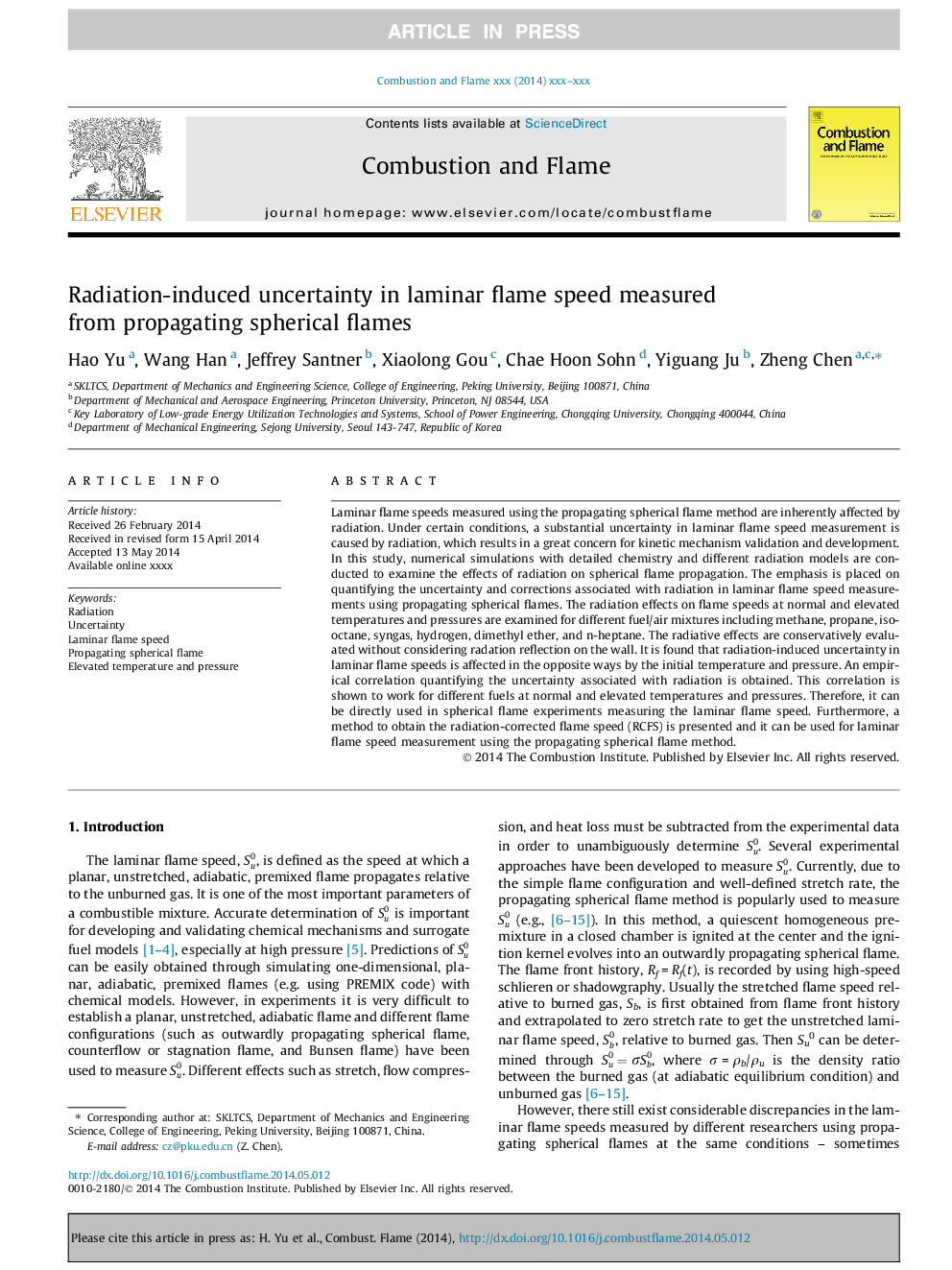| Article ID | Journal | Published Year | Pages | File Type |
|---|---|---|---|---|
| 10264335 | Combustion and Flame | 2014 | 10 Pages |
Abstract
Laminar flame speeds measured using the propagating spherical flame method are inherently affected by radiation. Under certain conditions, a substantial uncertainty in laminar flame speed measurement is caused by radiation, which results in a great concern for kinetic mechanism validation and development. In this study, numerical simulations with detailed chemistry and different radiation models are conducted to examine the effects of radiation on spherical flame propagation. The emphasis is placed on quantifying the uncertainty and corrections associated with radiation in laminar flame speed measurements using propagating spherical flames. The radiation effects on flame speeds at normal and elevated temperatures and pressures are examined for different fuel/air mixtures including methane, propane, iso-octane, syngas, hydrogen, dimethyl ether, and n-heptane. The radiative effects are conservatively evaluated without considering radation reflection on the wall. It is found that radiation-induced uncertainty in laminar flame speeds is affected in the opposite ways by the initial temperature and pressure. An empirical correlation quantifying the uncertainty associated with radiation is obtained. This correlation is shown to work for different fuels at normal and elevated temperatures and pressures. Therefore, it can be directly used in spherical flame experiments measuring the laminar flame speed. Furthermore, a method to obtain the radiation-corrected flame speed (RCFS) is presented and it can be used for laminar flame speed measurement using the propagating spherical flame method.
Keywords
Related Topics
Physical Sciences and Engineering
Chemical Engineering
Chemical Engineering (General)
Authors
Hao Yu, Wang Han, Jeffrey Santner, Xiaolong Gou, Chae Hoon Sohn, Yiguang Ju, Zheng Chen,
